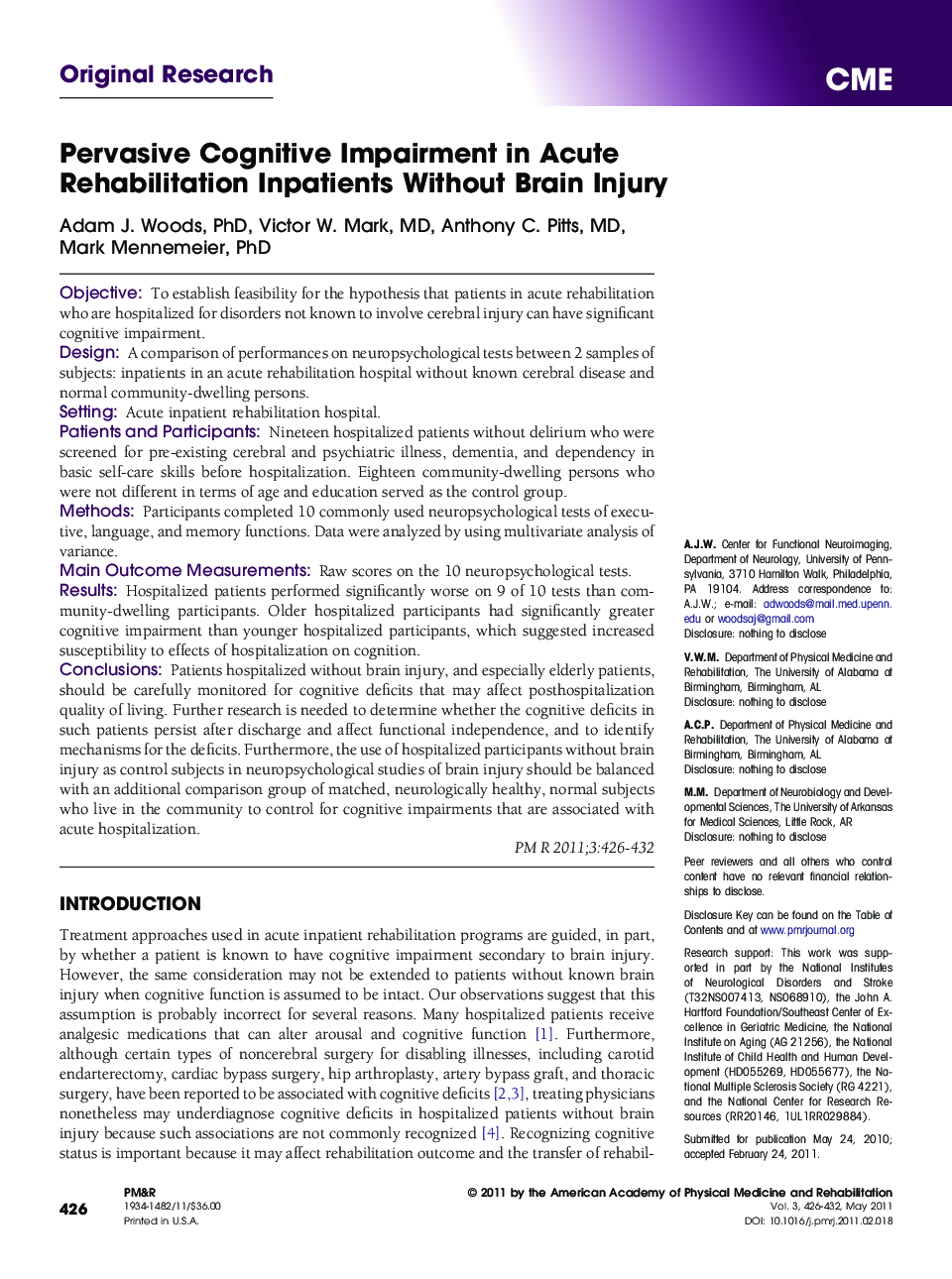| Article ID | Journal | Published Year | Pages | File Type |
|---|---|---|---|---|
| 2717363 | PM&R | 2011 | 7 Pages |
ObjectiveTo establish feasibility for the hypothesis that patients in acute rehabilitation who are hospitalized for disorders not known to involve cerebral injury can have significant cognitive impairment.DesignA comparison of performances on neuropsychological tests between 2 samples of subjects: inpatients in an acute rehabilitation hospital without known cerebral disease and normal community-dwelling persons.SettingAcute inpatient rehabilitation hospital.Patients and ParticipantsNineteen hospitalized patients without delirium who were screened for pre-existing cerebral and psychiatric illness, dementia, and dependency in basic self-care skills before hospitalization. Eighteen community-dwelling persons who were not different in terms of age and education served as the control group.MethodsParticipants completed 10 commonly used neuropsychological tests of executive, language, and memory functions. Data were analyzed by using multivariate analysis of variance.Main Outcome MeasurementsRaw scores on the 10 neuropsychological tests.ResultsHospitalized patients performed significantly worse on 9 of 10 tests than community-dwelling participants. Older hospitalized participants had significantly greater cognitive impairment than younger hospitalized participants, which suggested increased susceptibility to effects of hospitalization on cognition.ConclusionsPatients hospitalized without brain injury, and especially elderly patients, should be carefully monitored for cognitive deficits that may affect posthospitalization quality of living. Further research is needed to determine whether the cognitive deficits in such patients persist after discharge and affect functional independence, and to identify mechanisms for the deficits. Furthermore, the use of hospitalized participants without brain injury as control subjects in neuropsychological studies of brain injury should be balanced with an additional comparison group of matched, neurologically healthy, normal subjects who live in the community to control for cognitive impairments that are associated with acute hospitalization.
